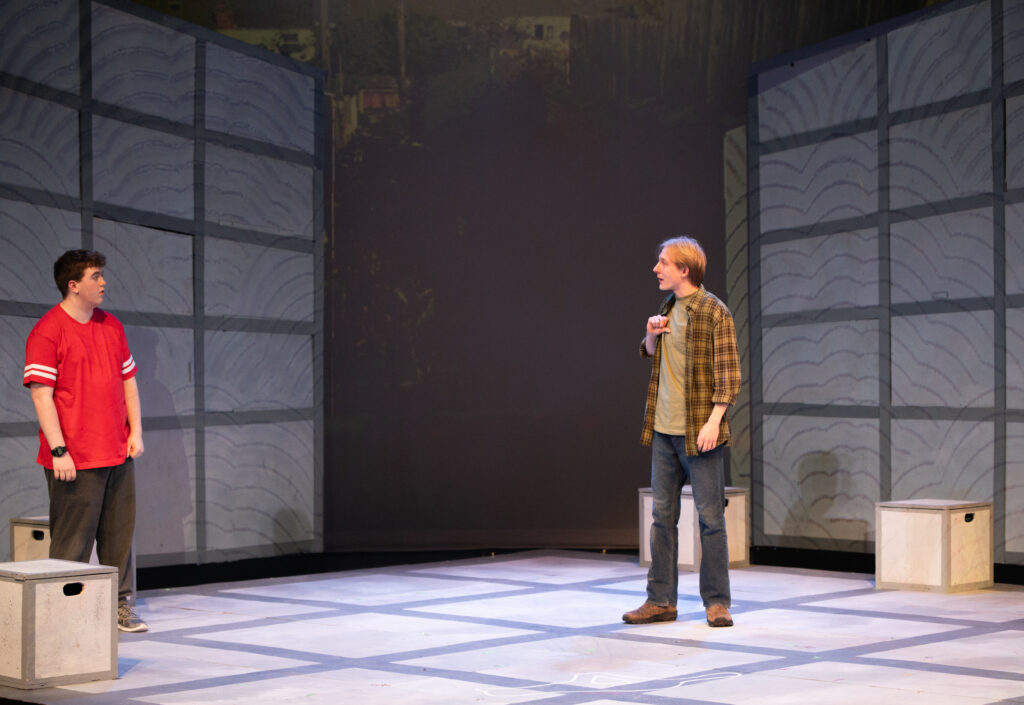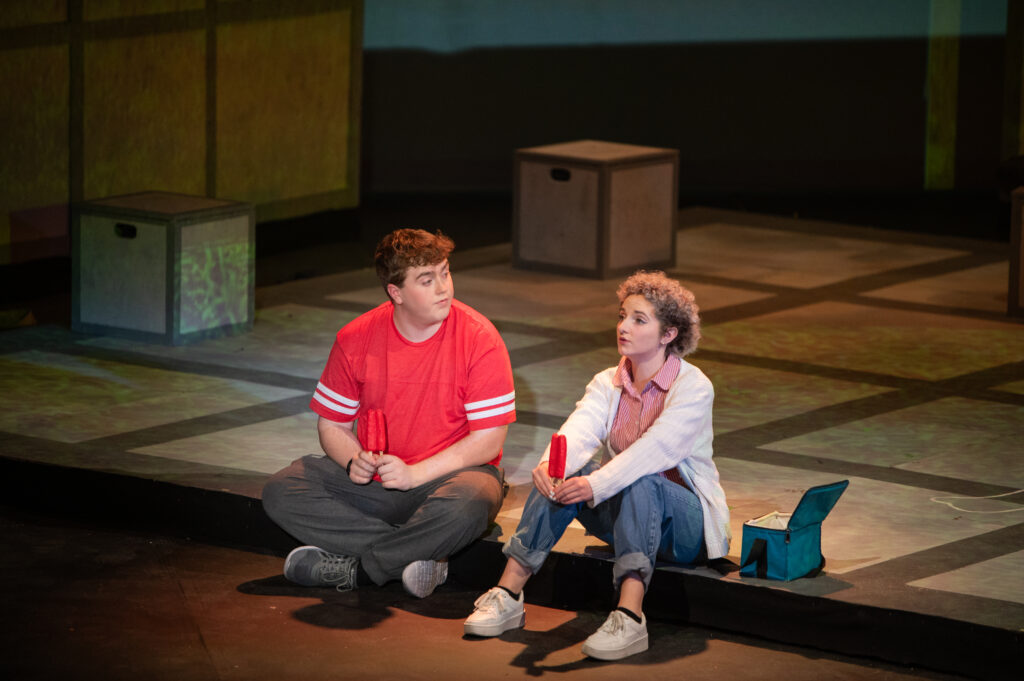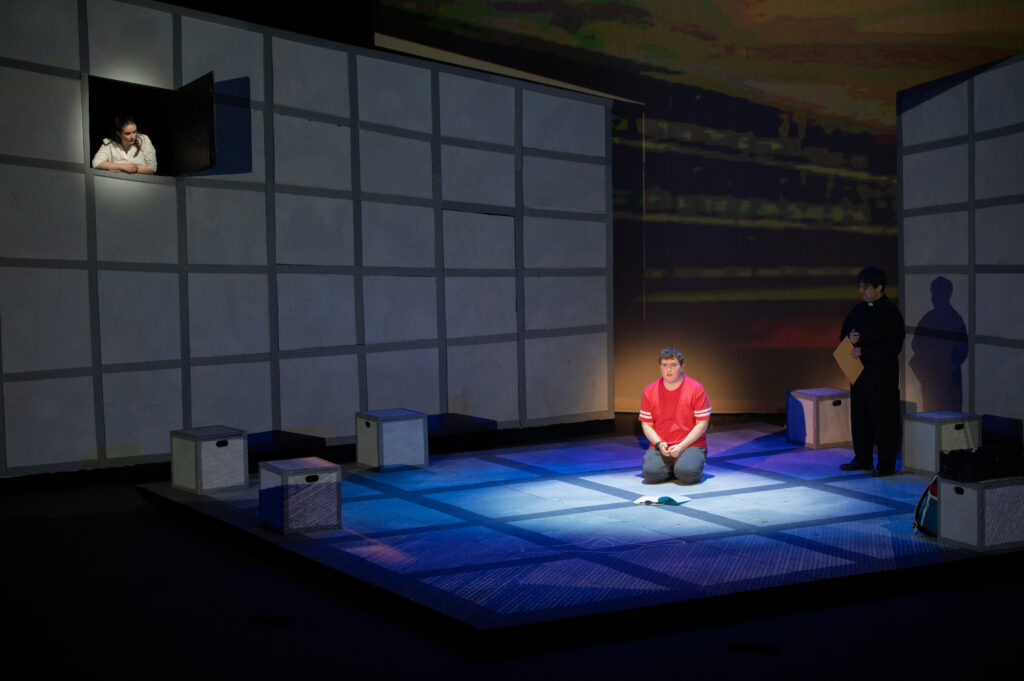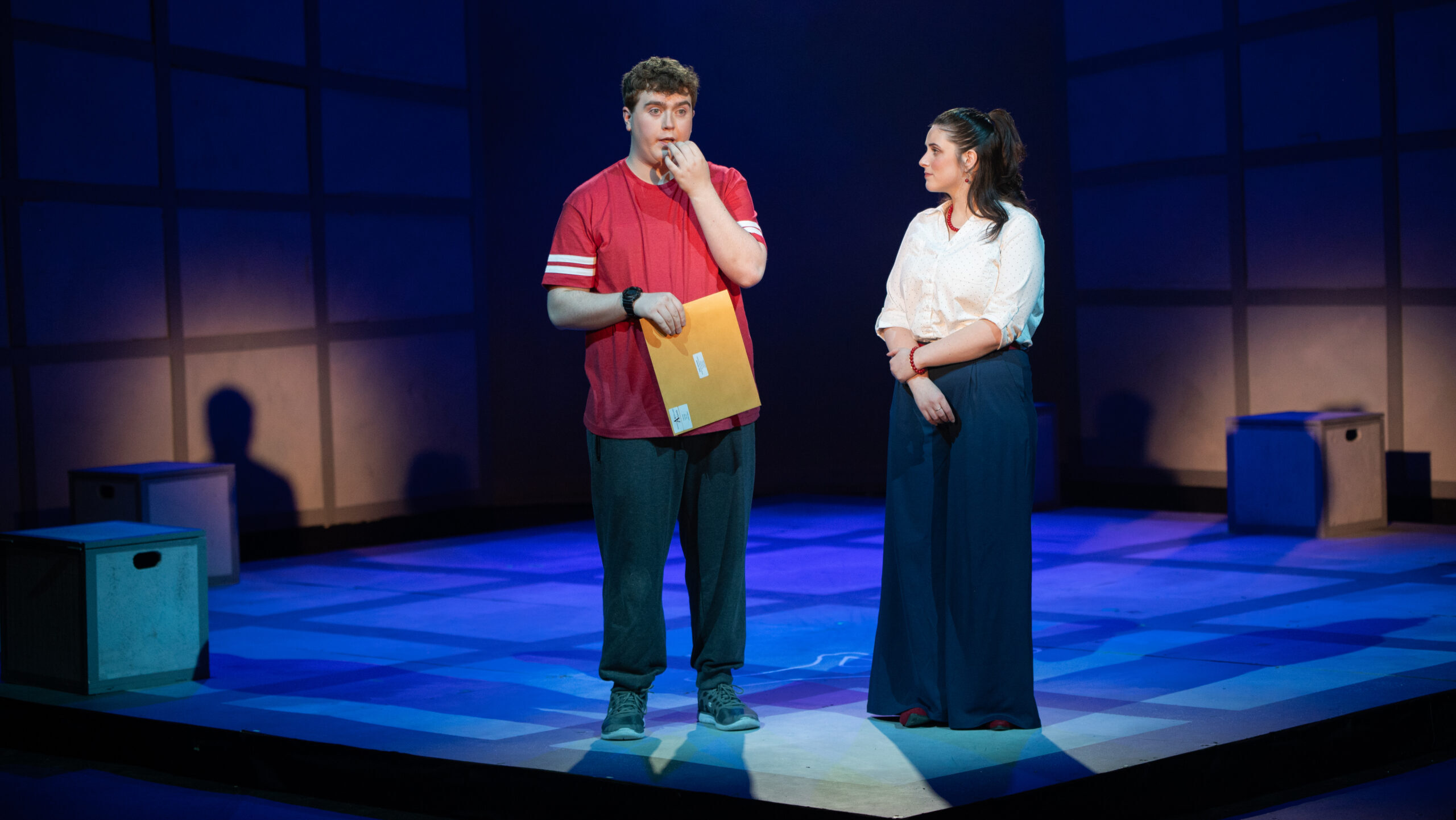LOGAN — A couple of years ago I read a book from the library called The Curious Incident of the Dog in the Night-Time that really stuck with me. I loved it so much that I took it to my book club and read it again with my friends. When I saw that my alma mater, the Utah State University Department of Theatre Arts was going to mount the play adaptation in the Morgan Theatre, I was excited to attend and see how the story would translate to the stage. Under the direction of Jayne Gold, this production captures both the novel’s intricate storytelling and the protagonist’s unique perspective, making for an unforgettable theatrical experience.
The Curious Incident of the Dog in the Night-Time began as a novel by Mark Haddon, published in 2003. One of the most striking aspects of the novel is its use of an unreliable first-person narrator. The story is told by Christopher Boone, a 15-year-old English boy with an extraordinary mind for math. Christopher’s perspective is precise and logical as he tells his story, but it is quickly apparent to the reader that he is neurodivergent and has difficulties interpreting the emotions and social cues of the world around him. The novel was adapted for the stage by Simon Stephens and premiered at London’s National Theatre in 2012. The play went on to win numerous awards, including seven Oliviers and five Tonys.
The story begins with Christopher discovering his neighbor’s dog, Wellington, has been mysteriously killed with a garden fork. Determined to solve the case, Christopher embarks on an investigation that leads him to uncover much more than he expected. The magic of the story comes from watching Christopher’s process as he tries to understand things the audience is able to solve before him and then see it from his perspective.

At the heart of this production is Jordan Radford’s powerful portrayal of Christopher Boone. Radford fully embodies Christopher’s intellectual precision and emotional depth. Radford’s physicality and vocal delivery depict Christopher’s sensory sensitivities and moments of anxiety authentically. The story never openly labels Christopher with a specific diagnosis, but he does exhibit autistic behaviors like stimming (repetitive movements or sounds used for self-soothing) and an intense dislike for being touched. By skillfully balancing Christopher’s relatability and limitations, Radford ensures the audience remains engaged and empathetic throughout the show.
As with any University production, the actors are all fairly close in age to each other, which can present a challenge for young actors to feel authentic. Playing Christopher’s father Ed Boone was Jonah Newton, who delivers a nuanced performance of a father struggling to care for his son while dealing with his own regrets and frustrations. Newton rose to the challenge to feel aged and worn down by years of responsibility gladly born, but difficult to shoulder. Newton’s chemistry with Radford makes their emotional confrontations raw and deeply affecting.
Es Barnes, as Judy Boone, gives a layered performance, showing both Judy’s love for her son and her struggles with the choices she made in her desperate overwhelm. Barnes’ youth does make it a stretch to seem maternal, but being maternal is Judy’s biggest struggle, so Barnes’s performance still resonated with me. Gold’s direction also incorporates sign language into the show as another way that Ed and Judy try to communicate with their son, which Barnes beautifully integrates into the performance.

Avery Burt shines as Siobhan, Christopher’s teacher and mentor. Siobhan serves as both a guide to Christopher and a narrator for the audience, helping bridge the gap between Christopher’s internal world and the audience’s understanding. Burt’s performance is compassionate and grounding, providing moments of clarity throughout the play.
The rest of the ensemble does a superb job filling in the rest of the inner and outer world around this small, fractured family. The scenic design by Ky Trupp feels both minimalistic and expansive as the Morgan’s thrust proscenium stage is filled with a white platform and walls subdivided into a neat grid system. Since the whole play is set in Christopher’s mind, it feels intimate and makes a perfect canvas, particularly later in the play when it opens up as Christopher’s world is also forced to expand.
Joshua Legate’s projection design is a standout element. The entire performance projects captions on the outer walls of the stage, making it accessible to hearing-impaired patrons. I found the captions also added to the idea of the entire play being written by Christopher as his inner monologue. Then alongside the black and white text of his thoughts, projections help illustrate his mathematical mind and how he categorizes the world around him. When Christopher is trying to navigate the train system, the projections work very well with Dakota Sanches’s sound design to bring the audience into Christopher’s experience of sensory overload.

Jayne Gold’s direction ties all the elements together seamlessly, crafting a production that is both visually dynamic and emotionally resonant. The show balanced the play’s intense moments with some lighter, humorous beats, making for a well-rounded experience. The various British dialects used by the cast feel fairly consistent overall and enhance the realism. The production does an exceptional job of portraying Christopher’s unreliable narration in a way that enhances the audience’s engagement with the story.
I only give a slight caution that the show is rated PG-13 for some language, including one F-word at the beginning of the production. I highly recommend it to anyone who appreciates thought-provoking theatre. I commend the USU Department of Theatre Arts for its efforts to be sensitive to the subject matter, while making a piece that is a testament to the power of storytelling. USU’s production of The Curious Incident of the Dog in the Night-Time proves theatre can be both a window into another person’s world and a mirror reflecting our own human experiences.
[box] Utah State University Department of Theatre Arts production of The Curious Incident of the Dog in the Night-Time plays February 7,8, 11-14 at 7:30pm. A matinee performance on February 15th at 1:00pm will be a “relaxed performance” specially designed and adapted to patrons who may find standard theatre environments challenging. All performances will be on the Morgan Theatre at the Chase Fine Arts Center on the Utah State University campus. Tickets are $15-$20. For more information visit https://cca.usu.edu/theatre/ [/box]
